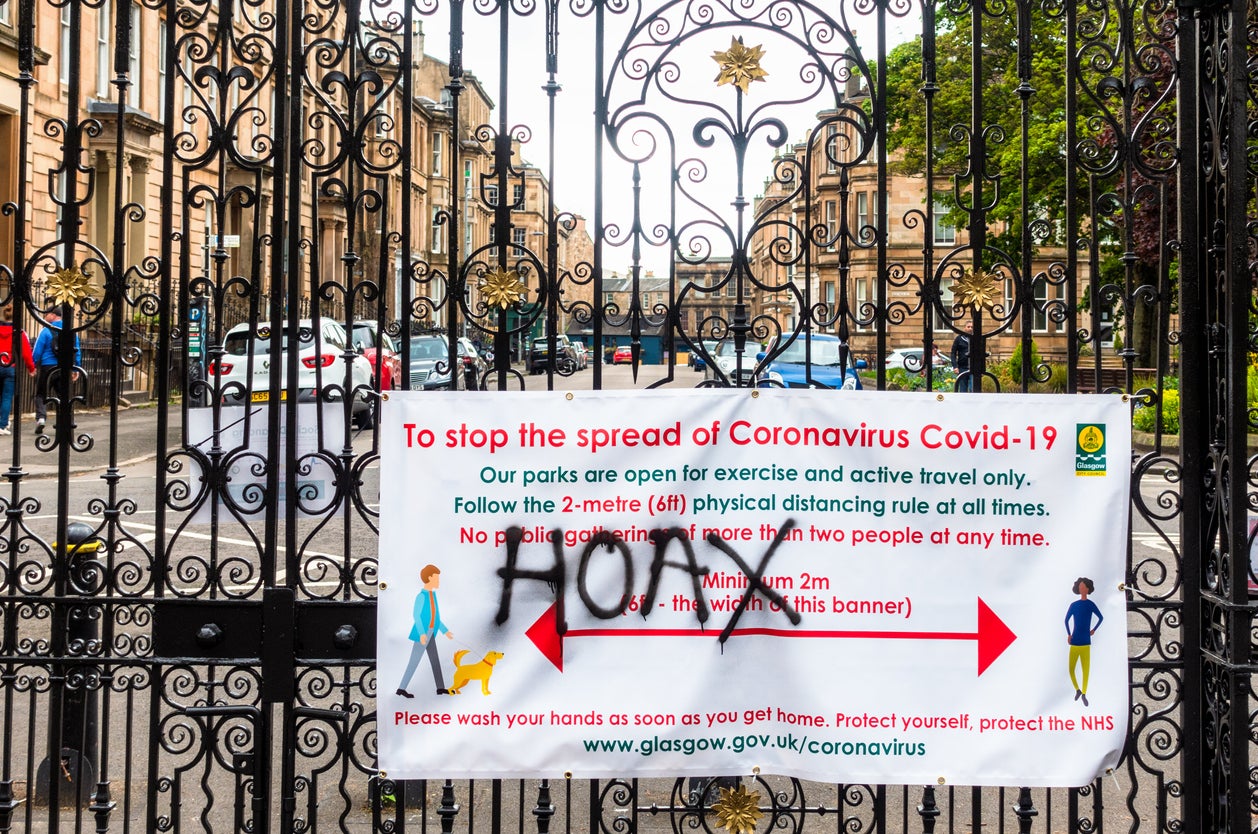Believing Covid is a hoax acts as ‘gateway’ to other conspiracy theories, study says
People convinced virus was manufactured more likely to believe false claim that US election was stolen from Donald Trump

The false belief that the Covid pandemic was a hoax can serve as a “gateway” for people to believe in other conspiracy theories, according to researchers.
People convinced the virus was manufactured for “sinister reasons” were more likely to believe in other false narratives, such as the 2020 US presidential election being stolen from Donald Trump by voter fraud.
Researchers at the University of Ohio in the US said their work suggests that conspiracy theory beliefs prompted by a single event lead to increases in conspiratorial thinking over time, in what they described as the “gateway conspiracy” hypothesis.
“It’s speculative, but it appears that once people adopt one conspiracy belief, it promotes distrust in institutions more generally – it could be government, science, the media, whatever,” Russell Fazio, professor of psychology at Ohio State and senior author at Ohio University, said.

“Once you start viewing events through that distrustful lens, it’s very easy to adopt additional conspiracy theories,” he added.
Javier Granados Samayoa, first author who completed the work while a graduate student in psychology at Ohio State, said that the field of conspiracy theory research is “relatively young”.
But if “you read interviews or forums frequented by conspiracy theorists, you see a phenomenon where people tend to go down the rabbit hole after something happens in their life that triggers general interest in conspiracy theories,” he added.
“With Covid-19, there was this large event that people could not control, so how could they make sense of it? One way is by adhering to conspiracy theories.”
For their study, published in the PLOS ONE journal, the researchers asked 501 participants in a June 2020 survey to answer questions assessing their beliefs in Covid-19 conspiracy theories, political ideology and what is called conspiracist ideation, or one’s overall affinity for conspiracy theories.
Participants gave their answers on a five-point scale, ranging from “definitely not true” to “definitely true” to rate statements such as “Some UFO sightings and rumors are planned or staged in order to distract the public from real alien contact” and “New and advanced technology which would harm current industry is being suppressed.”
Six months later, in December 2020, 107 of those same participants again responded to statements gauging their level of conspiratorial thinking.
Researchers further assessed conspiracist ideation by asking participants to report the extent to which they believed that there had been extensive voter fraud in the 2020 presidential election.
The results of the analysis showed that participants who reported greater belief that the SARS-CoV-2 virus was released for dark purposes and that the severity of Covid-19 disease was blown out of proportion also reported greater belief that the 2020 election had been stolen from Mr Trump.
And compared to their baseline conspiracist ideation measured in the June survey, Covid skeptics had higher levels of general endorsement of conspiracy theories six months later.
The association held true even after the analysis took into account the association between belief in conspiracy theories about Covid-19 and voter fraud and conservative political views, said Mr Samayoa, now a postdoctoral fellow at the University of Pennsylvania.






Join our commenting forum
Join thought-provoking conversations, follow other Independent readers and see their replies
Comments